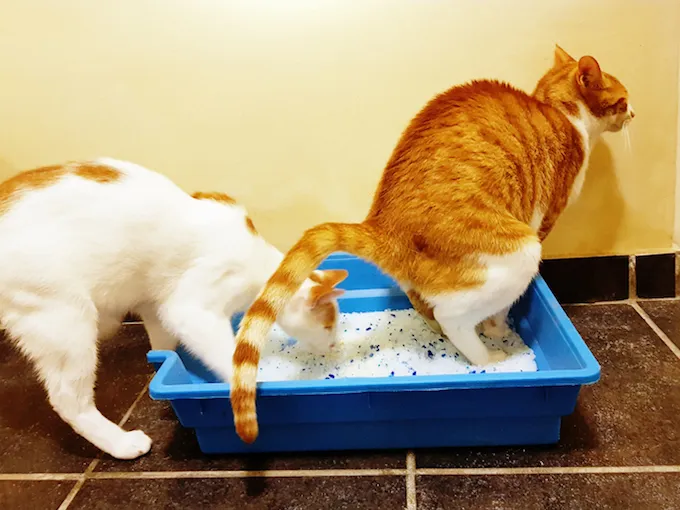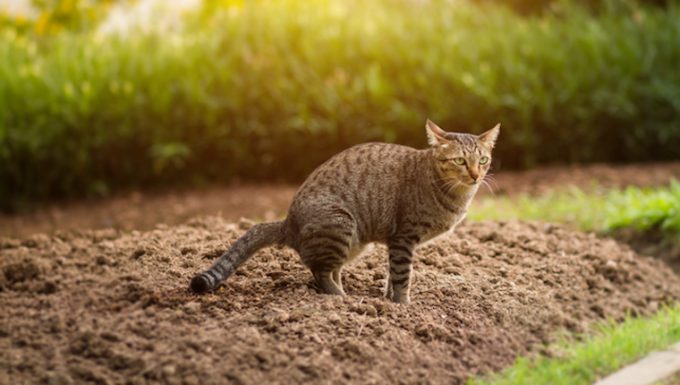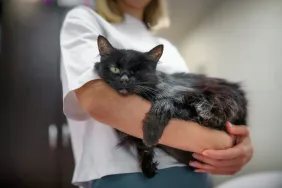Colonic or rectal inflammation in cats is a disease that affects the bowel. In short, the condition makes a cat’s colon inflamed and can cause ulcers.
Consequently, a cat’s colon is unable to properly store their poop and absorb enough water.
Technically, the condition is also called colitis and proctitis.
If you see the signs of colonic or rectal inflammation in your cat, then get to a veterinarian for a proper diagnosis and treatment.
Here’s what you should know about the symptoms, causes, and treatments for the condition.
Symptoms of Colonic or Rectal Inflammation in Cats
The condition produces a range of symptoms. These symptoms usually get progressively worse. Some of the most common symptoms include:
- Diarrhea with blood
- Diarrhea with mucus
- Pooping more often but with smaller poops
- Loss of appetite
- Straining a lot while pooping
- Vomiting
- Dehydration
- Losing weight
- Going into hiding
Causes of Colonic or Rectal Inflammation in Cats

Technically, there are a wide number of causes for the condition. Some of the most common causes include:
- Parasites (like tapeworms)
- Inflammatory bowel disease
- Infections (bacterial and fungal)
- Side effect of antibiotics
- Allergies from food
- Eating something toxic
- Changes in diet
- Immune system issues
Treatments for Colonic or Rectal Inflammation in Cats
Firstly, your vet will ask detailed questions about your cat’s medical history and symptoms. Secondly, your vet will examine your cat’s rectum. This is to look for any abnormal changes. Thirdly, blood and urine tests will be taken.
Next, a sample of your kitty’s poop will be taken. This will show up any bacteria or parasites.
In cases with severe symptoms, an X-ray or colonoscopy will be recommended. These will help shed light on the cause of the inflammation.
Ultimately, treatment for the condition will depend on the underlying cause. Some of the most common treatments include:
- Surgery to remove any tumors
- Diet changes (usually high protein)
- Fluid therapy to help with dehydration
Additionally, in most cases anti-inflammatory medication will be recommended. As always, it’s important to stick to your vet’s instructions with any medicine. Follow the exact dose and frequency guidelines.
Finally, provide your cat with a calm and quiet home environment so that they can successfully recover from the condition.
Have you ever cared for a cat who suffered from this condition? How did your vet help your kitty recover? Let us know in the comments section below.









